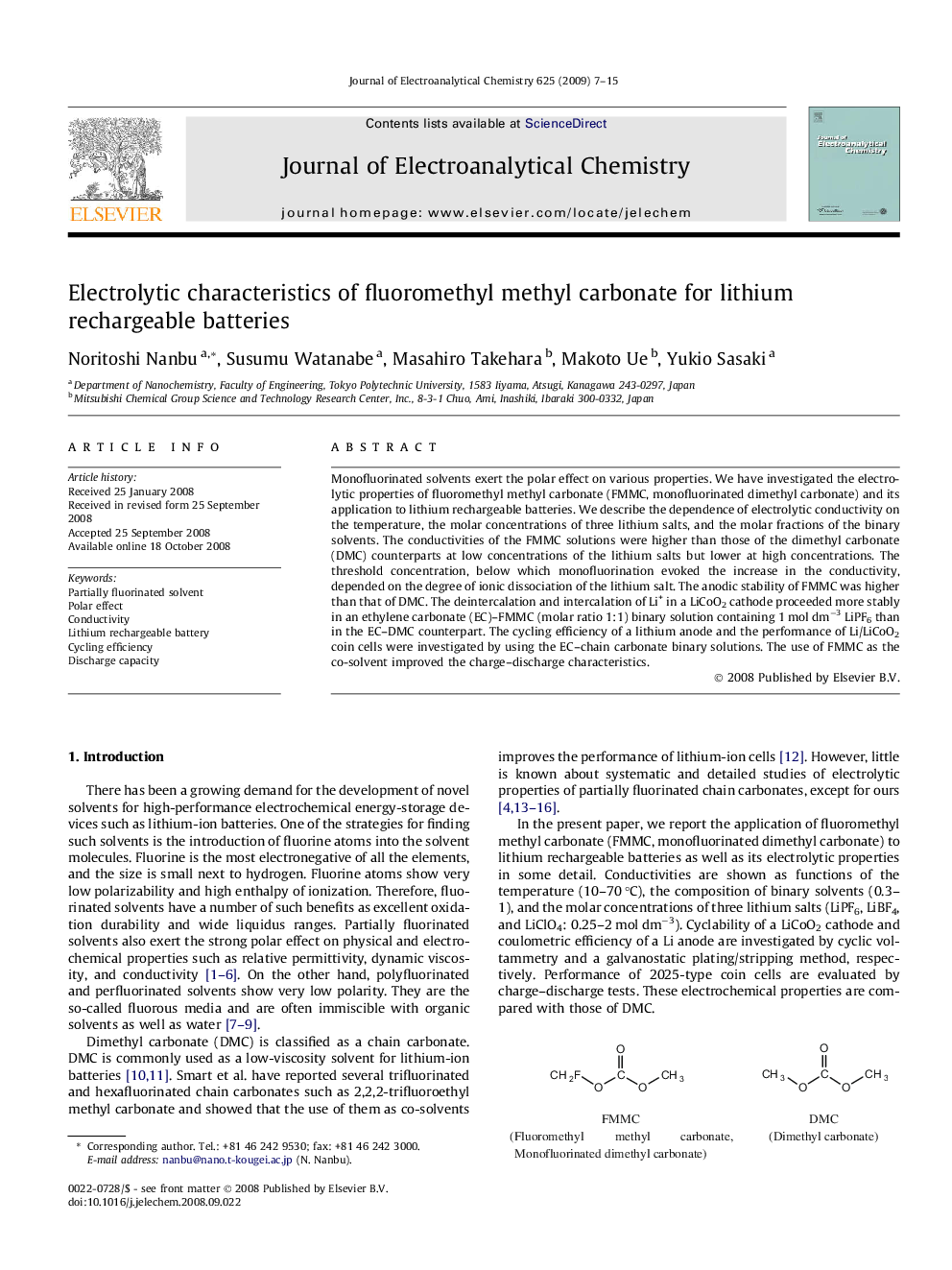| Article ID | Journal | Published Year | Pages | File Type |
|---|---|---|---|---|
| 220559 | Journal of Electroanalytical Chemistry | 2009 | 9 Pages |
Monofluorinated solvents exert the polar effect on various properties. We have investigated the electrolytic properties of fluoromethyl methyl carbonate (FMMC, monofluorinated dimethyl carbonate) and its application to lithium rechargeable batteries. We describe the dependence of electrolytic conductivity on the temperature, the molar concentrations of three lithium salts, and the molar fractions of the binary solvents. The conductivities of the FMMC solutions were higher than those of the dimethyl carbonate (DMC) counterparts at low concentrations of the lithium salts but lower at high concentrations. The threshold concentration, below which monofluorination evoked the increase in the conductivity, depended on the degree of ionic dissociation of the lithium salt. The anodic stability of FMMC was higher than that of DMC. The deintercalation and intercalation of Li+ in a LiCoO2 cathode proceeded more stably in an ethylene carbonate (EC)–FMMC (molar ratio 1:1) binary solution containing 1 mol dm−3 LiPF6 than in the EC–DMC counterpart. The cycling efficiency of a lithium anode and the performance of Li/LiCoO2 coin cells were investigated by using the EC–chain carbonate binary solutions. The use of FMMC as the co-solvent improved the charge–discharge characteristics.
